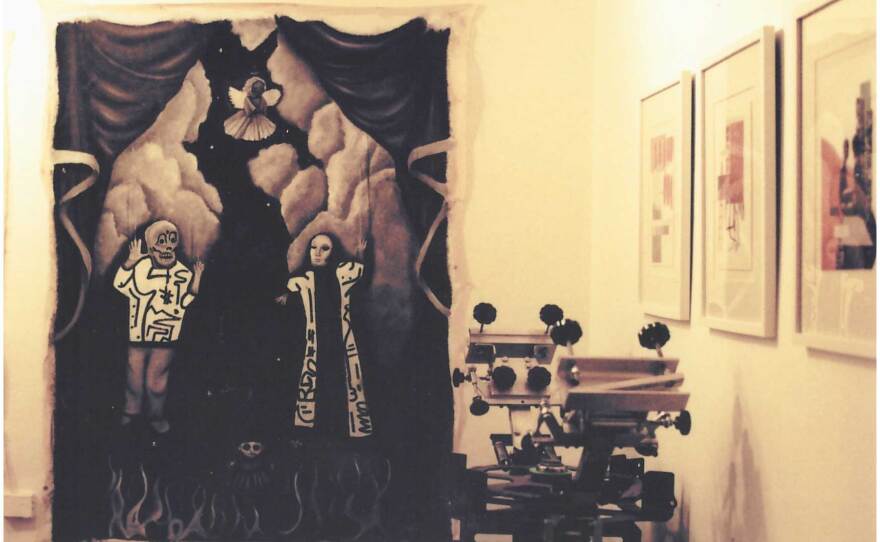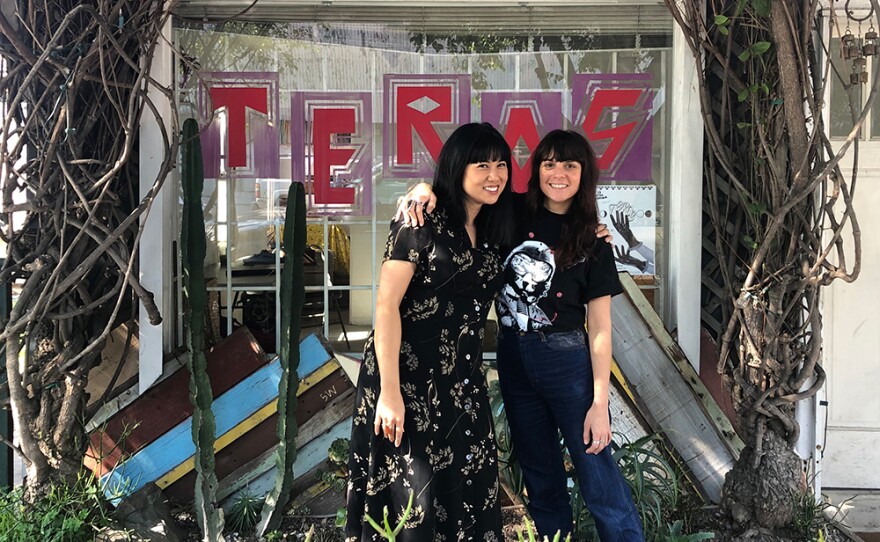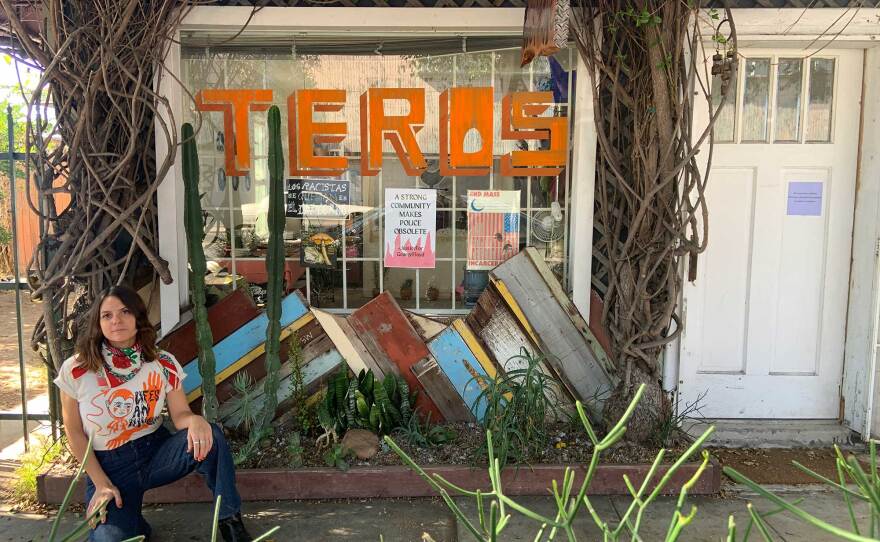To make sense of this moment, Teros Gallery founder Alejandra Frank often turns to a line attributed to the writer Octavia Butler: "There's nothing new under the sun, but there are new suns."
For the past five years, Teros Gallery made its home in a tiny storefront tucked on the more unassuming side of a busy intersection: University Avenue and Swift Avenue, on the cusp of North Park and City Heights. The front window featured an ever-changing painted nameplate, and during art openings and shows, mingling crowds would often spill out on the shady sidewalk, lush with plants.
Teros existed before the space too. Frank first devised Teros as a magazine, featuring art, poetry, literature and current events, and with each release, she'd hold a release show, often at warehouses or abandoned churches. "I knew that I wanted a space," she said. "I just didn't really know how that was going to happen or where or when."
In 2015, the Swift spot came to life. Frank loved bringing together the contributors, local artists and musicians for these events and each publication. "The moment we had Teros we were able to showcase all of those," Frank said.

In addition to gallery exhibitions, they'd host movie nights, band performances and more. Frank particularly liked offering a stage to bands that otherwise wouldn't come to San Diego, and Teros joined the very limited ranks of all-ages or non-bar venues for live music in town.
But during the pandemic, the building became more of a burden than an essential part of Teros, and they officially moved out of the Swift Avenue space in December.
"All signs were just pointing to the direction of having a complete transformation, given everything that has been going on this year. I felt that it was best to control and tame the fire instead of letting it burn, so to speak. We have hit capacity with the space, and it's been impossible to be sustainable or exist during a pandemic," Frank said. "We weren't necessarily pushed out of the space. It was more so having to take a step back and seeing what was the best solution. And do I want to keep paying rent for a space that I'm not using, or do I want to use that money to support artists and evolve and connect with others?"
For now, Frank and head curator Carmela Prudencio are looking at pairing up with other groups, including the literary arts group and risograph press Burn All Books, which has also lost their brick and mortar space during the pandemic.
Teros is working with Burn All Books on upcoming print newsletters and other projects, as well as talking regularly to imagine collaborations and ideas for a future space.
"This is all in its early stages but it's exciting planning this with Teros, to see our missions overlap into this third space that would make for a combination of both our efforts," said Nick Bernal of Burn All Books. Burn All Books had closed their storefront earlier in the year to work from home, and officially gave their space back to the adjacent Verbatim Books in October.
Teros is also working on building inventory online, planning ways to provide mutual aid for artists, and trying to reimagine how to support and foster the San Diego art scene.
"Folks are always going to crave creativity," Frank said. "I don't think that a pandemic can necessarily take that away."

2020 was a tough year for the arts community, particularly the underground and independent arts scene where, without major grants or funders, many spaces were already scraping by to cover rent and pay artists.
"And then now that things are just more on the surface, I think that people realize how important it is to support your peers and the artists that you love, or the small businesses that you want to see. So I think that there's just more intention now, where folks are just trying to support each other at another level that I think is really beautiful," Frank said.
Without the burden of paying rent, and without the payoff of being able to gather in a space during the pandemic, Frank is thankful for the ability to focus on moving forward and being a platform for artists to share and sell work — like silkscreening, zines and more. They've also been printing pamphlets and working on graphic design for social justice movements.
In 2021 and beyond, Frank hopes that Teros can find a new space, perhaps in collaboration with other like-minded groups to continue their adaptive work to uplift artists. And she hopes she and Prudencio will have more time to create their own art, too.
"2020 has been a really rough year but it's been a revealing time as well. And it's just another challenge for us. If anything it's proved how resilient we are in ways, too," Frank said. "I don’t think that I failed by closing down the space. If anything, I feel like we succeeded in transforming and recognizing ways to adapt. And I think that's really special."







